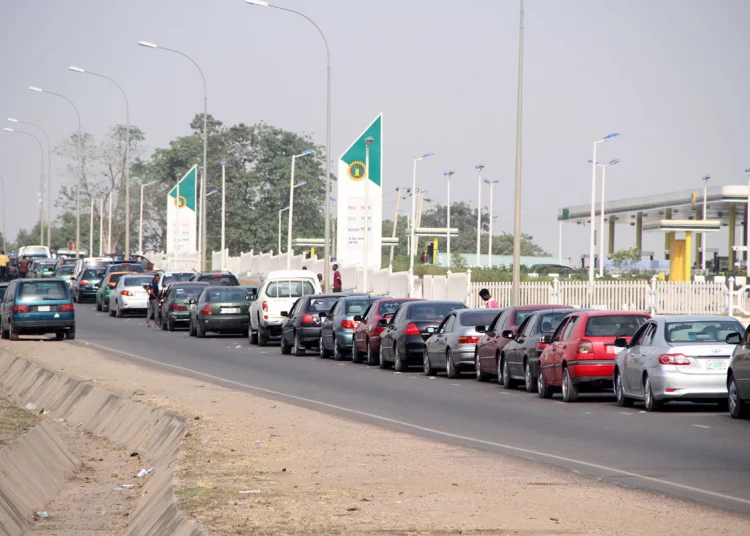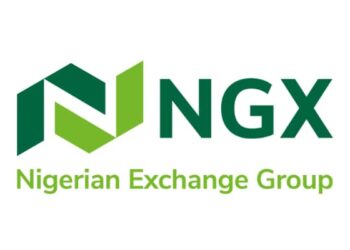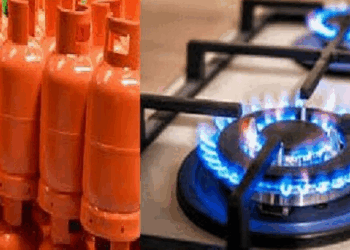Nigeria has been observed for escalating environmental problem with her citizens spending a staggering $10 billion (N7.6 trillion) annually on petrol and generator maintenance.In a new report by Sustainable Energy for All (SEforALL), Lagos State is leading in the act and the report says this exorbitant expenditure underscores the country’s heavy reliance on fossil fuels for energy generation, despite significant challenges and environmental concerns.According to the report in partnership with the Lagos State Government, the high cost of fuel and generator (genset) maintenance places a heavy burden on households and businesses, hindering economic growth and development.Nigerians reportedly spend $10 billion (N7.6 trillion) annually on fuel and maintenance for small petrol genset, SEforALL said in the report entitled, ‘Beyond Gensets: Advancing the Energy Transition in Lagos State.’The report noted that, Lagos State’s heavy reliance on diesel-powered generators has resulted in an alarming environmental toll, with estimated annual carbon emissions reaching 39 million tons of CO2 equivalent (tCO2e), higher than three other African countries such as Rwanda, Gabon, and Togo.The study revealed that emissions from Lagos’ residential, commercial, and market sectors are overwhelming. The residential sector alone accounts for 21 million tonnes of CO2 emissions annually, while the commercial sector contributes 17.8 million tonnes, with markets adding a further 141,125 tonnes.Together, these emissions amount to 39 million tonnes of CO2, a staggering figure when compared to emissions from other nations, SEforALL said. The report explained that the average small business in Africa’s biggest economy spends N20,000 to 40,000 per month just on fuel. This is the largest cost to many small and medium enterprises (SMEs) in their operations, SEforALL said.Nigeria, one of Africa’s largest economies, has long struggled with an unreliable power supply, forcing its citizens and businesses to resort to self-generated electricity. The country faces critical energy challenges from the lack of access to electricity and clean cooking to the scarcity and price hike of petrol.The cost of electricity for petrol generators is 83 percent higher than the cost of electricity from the grid, SEforALL said. The report further states that Togo emits approximately 9.8 million tonnes of CO2 annually, Rwanda 10.6 million tonnes, and Gabon 10.2 million tonnes.The report estimates that Lagos State alone has a genset capacity of around 19 gigawatts (GW), far exceeding the national grid’s installed capacity of 12.2 GW.‘This dependency has not only placed Lagos at the forefront of Nigeria’s power generation challenges but has also contributed to a substantial environmental burden,’ the report said.The report notes that, the city’s dependence on gensets is largely a consequence of Nigeria’s unreliable electricity grid, which has long struggled to meet demand due to inefficiencies, underinvestment, and maintenance issues.Despite having an installed capacity of 13,014.14 megawatts (MW), Nigeria’s national grid frequently operates below optimal levels, with outages and inconsistent power supply forcing residents and businesses to rely on alternative power sources like generators.According to the World Health Organization (WHO), air pollution is a leading environmental risk factor, responsible for millions of deaths worldwide each year.The SEforALL report stressed the importance of transitioning to cleaner, more sustainable energy sources in Lagos and across Nigeria.Lagos State commissioner of energy and mineral resources, Biodun Ogunleye, highlighted the need for Lagos to lead Nigeria’s energy transition.“By understanding and working to mitigate the impacts of diesel and petrol generator sets, we are taking decisive steps toward a cleaner, more sustainable energy future for Lagos and Nigeria as a nation,” he said.The Nigerian Association of Chambers of Commerce, Industry, Mines and Agriculture (NACCIMA) has expressed concern over the increase in petrol pump prices in Lagos and Abuja. National President, NACCIMA, Dele Oye, made this known in a statement on Wednesday in Lagos.Oye said the prices, which had reached N998 and N1,030 per litre respectively, were placing a strain on businesses and households across the country.He spoke on the potential economic consequences of the price hike, warning that the increase could lead to higher transportation costs, exacerbate inflation and severely impact small and medium-sized businesses.He said that the decision, influenced by several underlying factors, warranted careful examination of its potential repercussions on the economy, particularly in the realms of pricing for goods, services and transportation.“With transportation costs directly tied to fuel prices, this increase will serve as a catalyst for higher freight charges. Given that fuel is a primary driver of inflation, the rise in petrol prices will exacerbate the already high inflation rate in Nigeria.“Households will find themselves paying more not only for fuel, but also for everyday goods and services, prompting a vicious cycle of rising costs and economic hardship.“The recent fuel price increase will have a profound impact on micro and nano businesses, many of which rely heavily on petrol generators to power their operations,” he noted.





